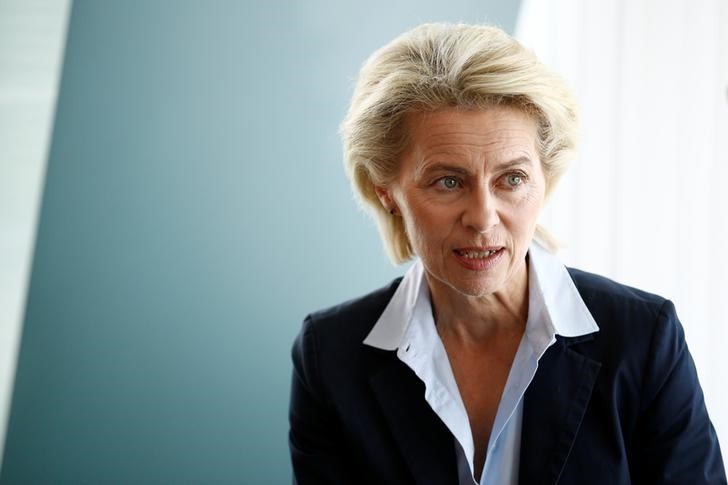(Bloomberg) --The European Union’s executive proposed toughening the bloc’s emissions targets in a move that’ll force industry to face stricter pollution standards and aims to spur a green economic recovery.
The 27-nation bloc should tighten its emission-reduction target to at least 55% by 2030, European Commission President Ursula von der Leyen told members of the European Parliament in a key policy speech on Wednesday. The current goal, agreed just six years ago, is a cut of 40% from 1990 levels.
“I recognize that this increase from 40% to 55% is too much for some, and not enough for others,” von der Leyen said. “But our impact assessment clearly shows that our economy and industry can manage this.”
Von der Leyen is aiming to refocus the bloc on its long-term goals after the executive was blindsided by the coronavirus during her first months in charge. The pandemic has handed the 61-year-old German a chance to accelerate her plans to make her European Green Deal the engine of economic recovery as governments mobilize unprecedented amounts of public money for the rebuilding effort.
Under the new climate target for 2030, European automakers would need to adopt tougher pollution standards with new rules that could see combustion engines phased out completely. Energy will grow increasingly cleaner, with an additional 350 billion euros ($415 billion) per year required for investment in production and infrastructure, according to a draft document seen by Bloomberg News.
A more ambitious climate target for 2030 is likely to garner broad support from national governments and the European Parliament.
If approved by national governments and the EU Parliament, the new goal will require buildings to become more energy-efficient and companies will face more strict pollution caps in the EU’s Carbon market, the world’s biggest.
The proposal is an addition to a key climate law that will be the legal foundation of the European Green Deal, a sweeping strategy for Europe to zero-out greenhouse gases by 2050.
